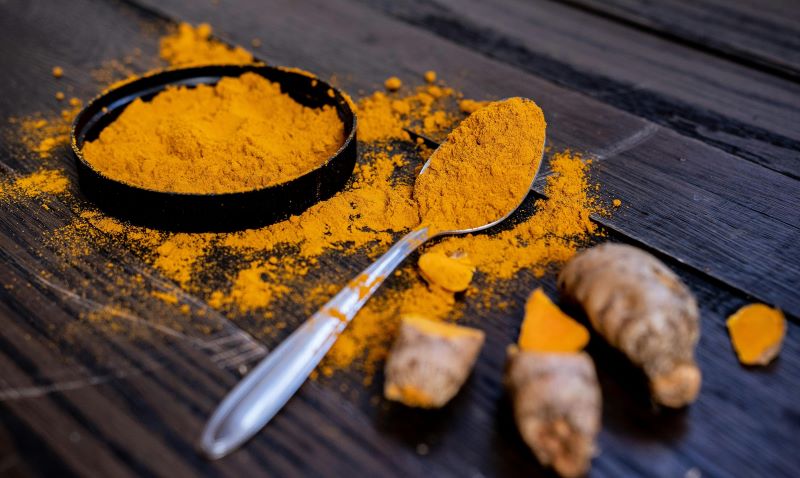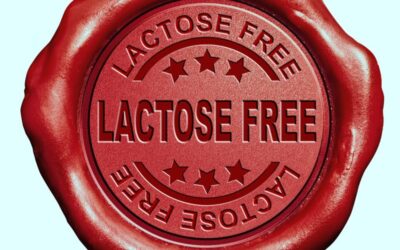Irritable bowel syndrome (IBS) is a common digestive disorder affecting millions worldwide. It can cause a frustrating mix of symptoms like cramping, bloating, diarrhoea and constipation. While there’s no cure, many people seek natural ways to manage their IBS symptoms. This is where curcumin, a compound found in turmeric, steps in as a potential help to improve symptoms.
What is curcumin and how does it work for IBS?
Curcumin is the main bioactive compound in turmeric, the vibrant yellow spice used in cooking and traditional medicine. Curcumin has anti-inflammatory and antioxidant properties, which might be key in managing IBS. Gut problems are often linked to inflammation in the gut. Curcumin’s anti-inflammatory properties may help reduce gut inflammation, potentially easing abdominal pain and discomfort. Additionally, IBS can involve oxidative stress, an imbalance of free radicals in the body. Curcumin’s antioxidant effects could help combat this imbalance and promote gut health.
Research on curcumin and IBS: promising signs
Studies suggest curcumin might be a promising option for IBS management. Here are some key findings:
- Reduced symptoms: A review analysing several studies found that curcumin may help alleviate IBS symptoms, particularly pain and bloating
- Improved quality of life: Research indicates that curcumin supplementation could improve overall quality of life for IBS patients
- Faster relief: Some studies suggest curcumin might offer faster relief compared to placebo, with positive effects observed within weeks
It’s important to note that some studies haven’t shown statistically significant results. More research is needed to definitively confirm curcumin’s effectiveness for IBS.
How to take curcumin for IBS
If you’re considering trying curcumin for IBS, here’s what to know:
- Dosage: Advice on dosage varies widely. Some studies use doses from 42mg to 500mg per day but it’s best to consult your GP or FODMAP Dietitian for personalized dosage advice
- Supplements: Curcumin supplements often have low bioavailability, meaning your body might not absorb it well. Look for supplements with black pepper extract as it enhances curcumin absorption. Curcumin can be found in sweet ‘gummie’ form, so could be a good way to contribute to your daily dose
- Food Sources: While not as concentrated as supplements, incorporating turmeric into your diet can provide some curcumin
Important considerations before trying curcumin
- Changes to your diet: Remember to explore more reliable sources to improve your IBS. The low FODMAP diet is heavily researched and shows improvement in over 75% of sufferers
- Stress management: Stress can have a significant effect on IBS, so try ways to counteract this. Relaxation techniques and meditation can help. Check out the ‘Headspace‘ app
- Check with your GP: Discuss curcumin with your GP, especially if you have any underlying health conditions or take other medication
- Start slow: Begin with a low dose of curcumin and gradually increase to avoid potential side effects like stomach upset
- Curcumin is not a cure: Curcumin should be considered a complementary approach alongside your IBS management plan
Conclusion
Curcumin, so is it a cure for IBS? Well, it shows promise as a natural remedy for IBS, potentially offering some relief, but further research is needed. However, curcumin’s anti-inflammatory and antioxidant properties make it a natural option to explore alongside other treatments. Remember, a healthy lifestyle with stress management and a balanced diet are crucial components of IBS management. So, it can be a useful adjunct to your current IBS treatment plan and shows great promise for the future, but explore other treatment options to improve your IBS symptoms.
Change your life in just three sessions
Need help to manage your IBS symptoms? I’m based in Cardiff, but work with IBS sufferers across the UK through online sessions. The vast majority of my clients have found that only three sessions are needed before they feel confident to move forward on their own. I will send you booklets, which have an extensive list of all the foods you can eat on the low FODMAP diet. I’m available for advice and support between sessions. Find out more about my IBS symptoms relief package. I offer a free initial telephone call for you to decide whether the low FODMAP diet is right for you. So give me a call or fill out the contact form.
Many of my clients say that working with a specialist IBS dietitian has been life-changing, and are finally managing to live more comfortable lives.
Read about previous client experiences and to help you decide it this is the right approach for you, see my webpage about IBS treatment.
Disclaimer: This blog is for informational purposes only and should not be taken as medical advice. Always consult with your GP before starting any new supplement or making changes to your IBS treatment plan.




